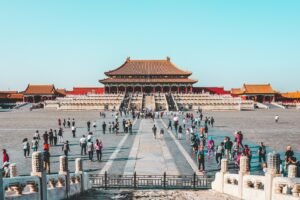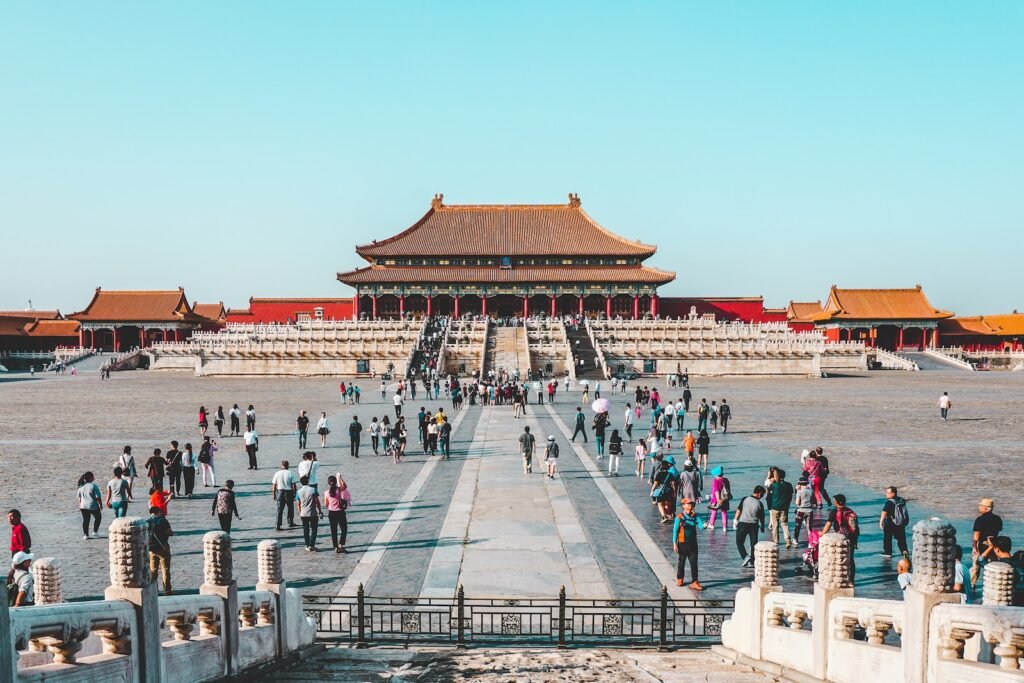China’s Global Influence: Examining the Potential
In recent years, China has emerged as a global powerhouse, gradually expanding its influence across various domains. As the world’s most populous country and second-largest economy, China’s rise has sparked debates about its potential for world domination. This article delves into China’s global influence, examining key factors that contribute to its growing power and influence.

Economic Growth: A Driving Force
China’s remarkable economic growth over the past few decades has been a driving force behind its global influence. With an average annual GDP growth rate of around 10%, China has become an economic powerhouse, attracting foreign investments and expanding its trade networks. Its massive manufacturing industry, coupled with its growing consumer market, has allowed China to wield significant economic leverage on the world stage.
Belt and Road Initiative: Expanding Reach
The Belt and Road Initiative (BRI), proposed by Chinese President Xi Jinping in 2013, is another crucial factor contributing to China’s global influence. This ambitious infrastructure project aims to connect Asia, Europe, Africa, and the Middle East through a network of roads, railways, ports, and other infrastructure developments. By enhancing connectivity and promoting economic cooperation, the BRI expands China’s reach and influence across the world.
Technological advancements: A game-changer
China’s rapid technological advancements have revolutionized various industries and positioned the country as a global leader in technology. From e-commerce giants like Alibaba and JD.com to the world’s largest 5G network deployment, China’s technological prowess has significant implications for its global influence. By investing heavily in cutting-edge technologies such as artificial intelligence and quantum computing, China has the potential to shape the global technological landscape.
Military Modernization: Shaping geopolitics
China’s military modernization and assertive posture in the South China Sea have raised concerns about its global ambitions. As it expands and modernizes its military capabilities, China is gradually reshaping the geopolitical landscape. The development of advanced weaponry, including aircraft carriers and hypersonic missiles, allows China to project power beyond its borders, making it a significant player in global security affairs.
Soft Power: Cultural influence abroad
China recognizes the significance of soft power in shaping its global influence. By showcasing its rich cultural heritage, promoting Confucius Institutes, and exporting its entertainment industry, China seeks to enhance its soft power abroad. The popularity of Chinese cinema, music, and cuisine, coupled with the global reach of platforms like TikTok, has enabled China to exert cultural influence and shape international perceptions.
Diplomatic Influence: Building alliances
China’s diplomatic influence has grown significantly in recent years. By investing in diplomatic relations with countries across the globe, China has built alliances and partnerships that strengthen its influence. Through its active participation in multilateral organizations such as the United Nations and the World Trade Organization, China seeks to shape international norms and promote its interests on a global scale.
Economic Diplomacy: Gaining economic leverage
Economic diplomacy plays a vital role in China’s global influence strategy. By providing loans, investments, and aid to other countries, China gains economic leverage and fosters dependency. China’s deep pockets and willingness to invest in infrastructure projects and industries across the world give it significant economic influence, enabling it to shape economic policies and gain strategic advantages.
Africa and Latin America: China’s expanding influence
China’s focus on Africa and Latin America as key regions for economic cooperation has further expanded its global influence. Through large-scale infrastructure projects, resource extraction, and trade agreements, China has become a major player in these regions. This growing influence has sparked debates about China’s intentions and potential neocolonialism, as some argue that China’s economic activities in these regions may come at the expense of local sovereignty and development.
Controversies and concerns: Examining the backlash
China’s global influence has not come without controversies and concerns. Critics raise concerns about the lack of transparency in China’s economic practices, its human rights record, and its growing assertiveness in territorial disputes. Debates surrounding China’s influence in advanced technology, espionage, and intellectual property theft have also sparked tensions with other major powers. These controversies and concerns pose challenges to China’s global ambitions.
Balancing act: Navigating global competition
As China’s global influence continues to grow, it faces the challenge of navigating global competition and maintaining a delicate balance. China must carefully manage its relationships with major powers, including the United States, Russia, and the European Union, to avoid escalating conflicts and ensure mutually beneficial cooperation. Finding a balance between economic expansion, military modernization, and diplomatic engagements is crucial for China’s long-term success.
Future Prospects: Assessing China’s trajectory
China’s global influence is undeniably on the rise, driven by its economic growth, technological advancements, and ambitious infrastructure projects. However, the path to world domination is far from certain. China faces numerous challenges and concerns that could hinder its progress. As the world continues to evolve, it remains crucial to closely monitor China’s trajectory and assess its future prospects. The balance of power on the global stage may depend on how China navigates these challenges and how other nations respond to its growing influence.

